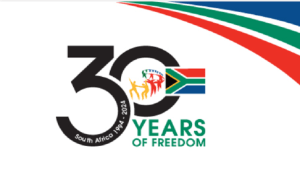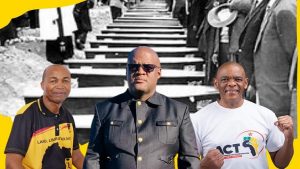This year marks 26 years since South Africa’s Constitution was adopted. Former President Nelson Mandela signed the final draft of the constitution on 10 December 1996, two years after the country’s first democratic elections.
The date and the place where the event happened are both symbolic in that, 10 December is International Human Rights Day and Sharpeville is where the apartheid government killed 69 people who were protesting against pass laws.
“ As we close the chapter of exclusion and a chapter of heroic struggle, we reaffirm our determination to build a society of which each of us can be proud, as South Africans, as Africans and as citizens of the world, “ said Mandela after signing the Constitution.
The Constitution is based on values of human dignity, equality and freedom as outlined in Chapter 2. South Africa’s Constitution incorporates the values of the Universal Declaration of Human Rights (UDHR) which recognises human rights to be the foundation for freedom, justice and peace.
While it has been hailed as one of the best in the world, some commentators have criticised the country’s progress in fulfilling the rights enshrined in the constitution. According to Section 27 of the Bill of Rights, everyone has the right to healthcare, food, water and social security.
Access to water
Communities such as Hammanskraal and Giyani are still struggling to get access to water. The government has spent R3.2 billion on the Giyani Bulk Water Project; however, residents still have no access to water.
Minister Senzo Mchunu has announced that the government will spend an additional R20 million on the project to ensure that the residents have access to water. The South African Human Rights Commission has declared the water in Hamanskraal unsafe for human consumption.
The water crisis has been ongoing for years, however, the problem has not been resolved:
Social services
South Africa has been spending billions on social security. In February, Finance Minister Enoch Godongwana announced that over the next three years, the government will spend R3.33 trillion to the social wage to support vulnerable and low-income households.
“This is approximately 60 % of non-interest spending. An additional R15.6 billion is allocated to provincial health departments to support their continued response to COVID-19, and to bridge shortfalls in essential goods and services,” he said.
However, there are still challenges in the provision of infrastructure. The government is still yet to implement the National Health Insurance which seeks to ensure that all citizens and residents of South Africa, irrespective of socio-economic status, have access to good-quality health services provided by both the public and private sectors.
The Department of Social Development has received the largest allocation of R58.6 billion over the medium term. Godongwana also announced that government will spend R44 billion for a 12-month extension of the R350 social relief of distress (SRD) grant.
However, critics have questioned whether the government can afford this expenditure:
South Africa will celebrate Human Rights Day on Monday to remember those who died in Sharpeville and Langa in 1960, celebrating the rights enshrined in the constitution.






